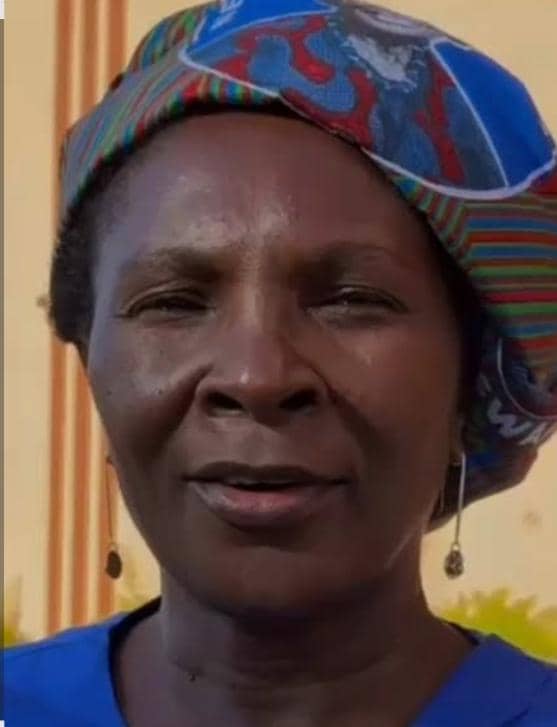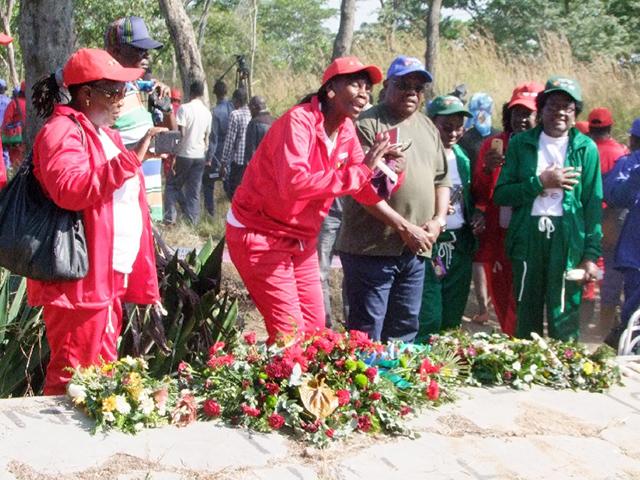AS members of the Kimberley Process Certification Scheme convene in Swakopmund today for a Plenary Meeting that will last until Thursday, various human rights groups calling for the suspension of Zimbabwe from the scheme have dismissed the KPCS as a failure.
Namibia, which has served as the Chair of the Scheme this year, has itself come under fire for what has been described as the Scheme’s ‘sluggishness’ this year – the alleged inaction on Zimbabwe being the main reason for this.The Kimberley Process Certification Scheme (KPSC), in its own words, ‘is a process aimed at the reduction and combating of the free flow of conflict diamonds in the mainstream rough diamond market, as well as to avoid illegal trading of diamonds between countries.’ The KPSC certifies diamonds that are ‘conflict free’, ‘assuring consumers that they are not financing wars and human rights violations by purchasing diamonds.’But various organisations have dubbed Zimbabwe’s diamonds as ‘blood diamonds’, with the country’s government being accused of gross human rights violations, and have called on the KPCS to suspend it. In the Marange diamond fields in particular, reports of violence, killings, illicit trade and smuggling taking place at the hands of the Government have surfaced regularly.’The Marange diamonds are being used to fuel conflict,’ Zimbabwean human rights lawyer Trust Maanda told The Namibian in June.’Testimonies show that that there is a clear conflict between ordinary citizens and security forces, and what is lamentable is that a national resource is being used to serve the interests of a few. ‘We also don’t know where the diamonds are going and what they are being used for, but we see the issues, and the people’s rights being violated. We see the army being used to suppress the people, and in this way, to prop up a repressive government.’Partnership Africa Canada (PAC), in its annual review on Diamonds and Human Security published last month, was direct in its stance on the KPCS’s action thus far.It simply stated that ‘from the evidence gathered … the Kimberley Process (KP), designed to halt and prevent the return of conflict diamonds, is failing’.’The cost of a collapse would be disastrous for an industry that benefits so many countries, and for the millions of people in developing countries who depend, directly and indirectly on it. A criminalised diamond economy would re-emerge and conflict diamonds could soon follow. The problems can and must be fixed,’ it stated.Before the KPCS’s Intercessional Meeting in June this year, these same concerns were raised by civil society organisations and some of the countries that make up the membership of the Scheme. And while Zimbabwe’s Deputy Minister for Mines and Mining Development, Murisi Zwizwai, told participants at the meeting that ‘Zimbabwean Diamonds are not blood diamonds’, a KPCS review visit immediately following the meeting reportedly found that Zimbabwe was not in compliance with KPCS standards, and that gross violations were taking place in that country’s diamond fields in Marange. It was reported that the KPCS gave the Zimbabwean government until July 20 to get its house in order or face suspension. But almost four months later, while there have been rumblings in the press about a damning final report on Zimbabwe, there is still no summary report on the visit on the KPCS’s website, and the Scheme itself has remained mum on the issue.International organisation Human Rights Watch says that Zimbabwe has failed to comply with any of the recommendations made in this regard, and that it should be immediately suspended ‘for continuing human rights abuses and widespread smuggling in the Marange diamond fields’. The human rights organisation, which says it carried out investigations at the diamond fields in mid-October, says that human rights abuses continue to take place there carried out by the Zimbabwean defence forces. ‘Zimbabwe has had more than enough time to put a halt to the human rights abuses and smuggling at Marange,’ HRW Africa Director Georgette Gagnon says. ‘Instead, it has sent more troops to the area, apparently trying to put a halt to independent access and scrutiny.’The organisation has urged members of the KPCS to suspend Zimbabwe until it ‘ends all human rights abuses in the Marange diamond fields; removes the army from Marange district, and demilitarises and depoliticises Zimbabwe’s diamond industry; and opens an impartial and independent investigation into alleged human rights abuses linked to the illicit extraction of Marange diamonds, their smuggling, and the associated culture of official corruption’. While Namibia, as the Chair of the process, made it clear at an Intercessional Meeting of the KPCS in June that the scheme is not a human rights organisation but that it monitors compliance with the scheme, the country is nevertheless expected to ensure that diamond consumers are assured that the diamonds they purchase are ‘conflict free’. Human Rights Watch says it believes that the suspension of Zimbabwe and a ban on Marange diamonds are critical to the credibility of the Kimberley Process and the diamond industry. ‘The Kimberly Process, established to end the trade of ‘conflict diamonds’, should fulfil its commitment to consumers that the stones they purchase have not been mined in situations of grave human rights abuse.’Some critics say Namibia has acted politically, instead of in the interests of the Scheme.Critics say the outcome of the Plenary Meeting could be Namibia’s saving grace, depending on what it decides, and how it justifies the Scheme’s position on Zimbabwe.Diamond news entity Rapaport in its editorial last week simply stated that ‘the Plenary in Namibia will provide an opportunity for the KP to take a strong stance on Zimbabwe and at least appear more proactive than it has been in the past. The world will be watching.’
Stay informed with The Namibian – your source for credible journalism. Get in-depth reporting and opinions for
only N$85 a month. Invest in journalism, invest in democracy –
Subscribe Now!










